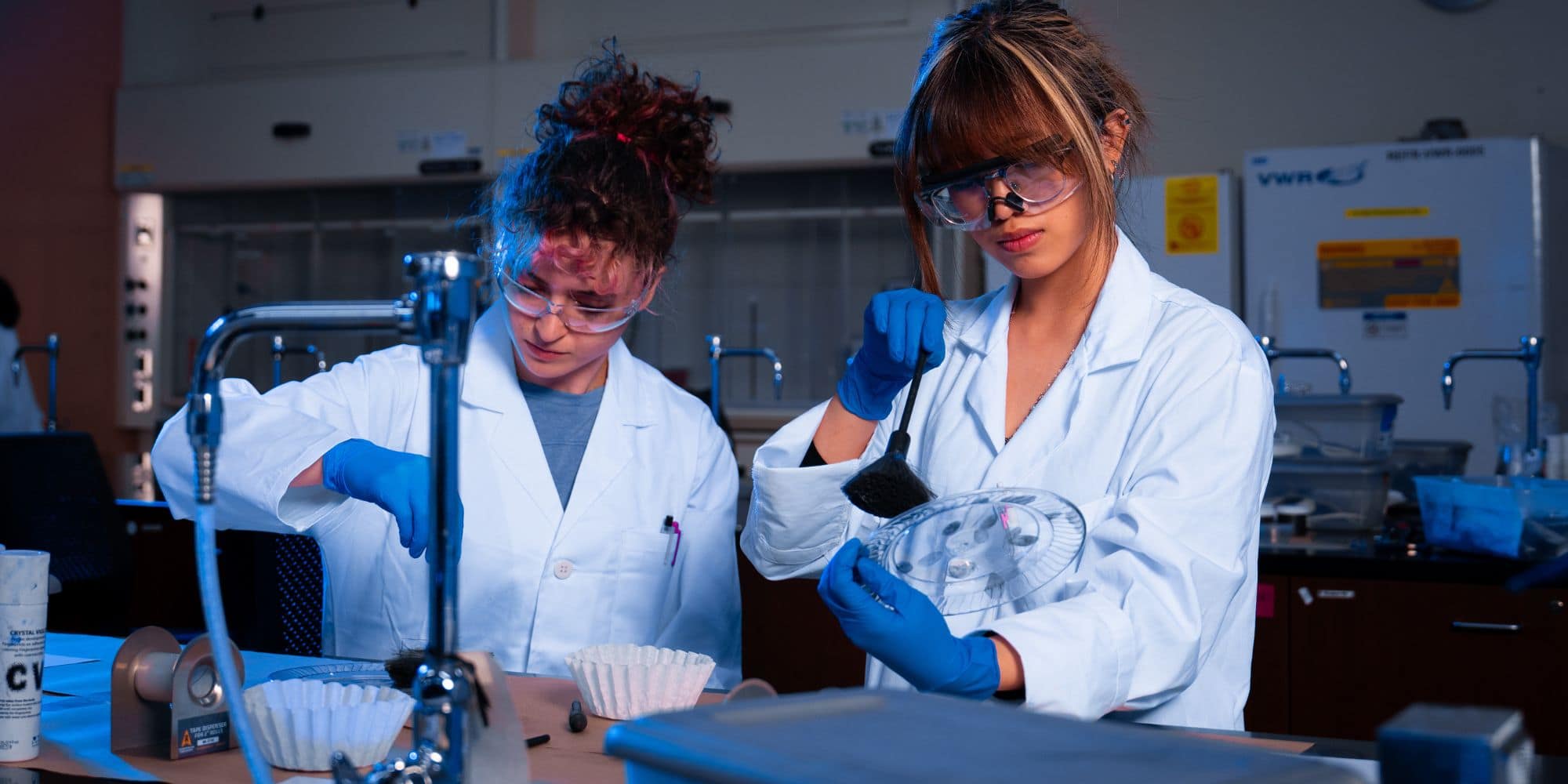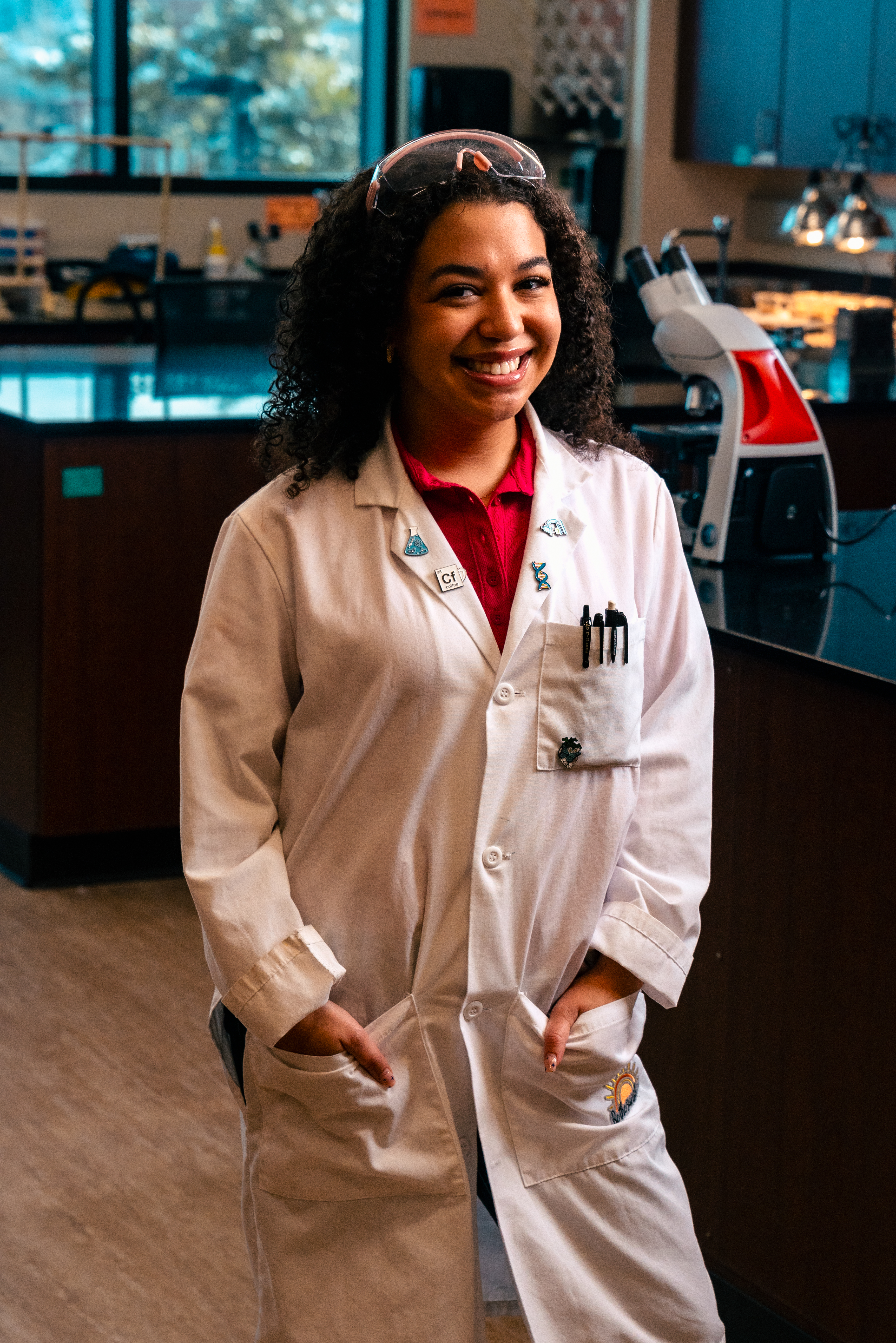

What is Forensic Biology?

Forensic biology is a growing field that merges science, investigation and justice. At Embry-Riddle Aeronautical University’s Prescott Campus, students earning a Bachelor of Science in Forensic Biology learn how to analyze evidence, investigate crime scenes and prepare for careers in one of today’s most in-demand industries.
The program is housed within the College of Arts and Sciences in the Department of Biology & Chemistry. With access to state-of-the-art laboratories, professional-grade equipment and faculty with science and law enforcement backgrounds, students gain both the technical and investigative skills needed to succeed in the field.
What is Forensic Biology?
Forensic biology is the application of biology, chemistry and related sciences to crime scene investigation and evidence analysis. Forensic biologists study DNA, tissue, blood and other biological materials to uncover details about crimes and accidents. Their findings are often key evidence in court cases and criminal investigations.
It’s a career path for those who are passionate about science, problem solving and making a real-world impact.
Beyond solving crimes, forensic biology can be applied in many ways — from helping identify victims after natural disasters to uncovering details about accidents and even wildlife conservation. It’s a field where science makes a real difference in people’s lives and communities.
What types of jobs can students aim for after graduation?
A Forensic Biology degree can lead to a variety of career paths. Graduates may pursue roles in:
- Local and state crime laboratories
- Federal agencies such as the FBI
- Medical examiners’ or coroners’ offices
- Offices of prosecutors and public defenders
- The Armed Forces DNA Identification Lab
- Private forensic laboratories
The U.S. Bureau of Labor Statistics predicts that employment opportunities for forensic science technicians will grow 13% from 2024 through 2034, much faster than the average for all occupations.
Beyond forensics, the program also prepares students for roles in medical research, biotechnology, hospitals and pharmaceutical companies. Many graduates also choose to continue their education in medical, dental, graduate or law school.
Where do forensic biologists usually work?
Forensic biologists often work in laboratories, but their jobs can take them out into the field as well. In a crime lab setting, they might perform DNA profiling, analyze tissue samples or prepare reports for use in court. In the field, they may assist law enforcement in collecting and preserving evidence at a crime scene.
At Embry-Riddle, students have opportunities to gain experience through internships with the Yavapai County Sheriff’s Office, working in units such as forensics and cold case investigations. Students can also travel to national conferences like the American Academy of Forensic Sciences (AAFS), where they network with professionals and explore potential career opportunities.
What are the necessary steps to work in this field?
To become a forensic biologist, students typically follow these steps:
- Earn a degree: A bachelor’s degree in Forensic Biology, biology or a related science is essential. Embry-Riddle’s program meets the requirements for certification by the American Board of Criminalistics (ABC).
- Gain lab and field experience: Hands-on training, internships and research projects are crucial for building expertise.
- Consider certification or advanced study: Graduates may pursue certification through ABC or continue to medical, dental, law or graduate school, depending on their career goals.
- Develop professional connections: Joining organizations like the International Forensic Honors Society, the Pre-Health Science Club, the American Academy of Forensic Sciences (AAFS) or Lambda Alpha Epsilon (ACJA-LAE) at Embry-Riddle helps students build networks that can lead to internships and job offers.
By following these steps and actively engaging in the field, aspiring forensic biologists can pave the way for a successful and rewarding career!

Hands-On Labs, Real-World Preparation
For Forensic Biology student Makenzi Patterson (’25), the most rewarding part of the program is the lab experience. Working with advanced instruments and practicing real forensic lab procedures is helping her build confidence for internships and future career opportunities.
“It’s extremely rewarding to learn proper lab techniques on such high-tech instruments because I will be able to show up to an internship or job already knowing how they work and what not to do,” said Patterson.
At Embry-Riddle, students like Patterson gain the skills and experiences that set them apart in the growing field of forensic biology
Learn more about Forensic Biology at Embry-Riddle
If you’re interested in biology, investigation and making a real impact in the justice system, forensic biology may be the perfect field for you. At Embry-Riddle Prescott, you’ll gain access to state-of-the-art laboratories, close mentorship from expert faculty and real-world opportunities through internships, competitions and research opportunities.
With a 100% placement rate within one year after graduation, Embry‑Riddle forensic biologists leave prepared for successful careers in crime labs, federal agencies, healthcare, biotechnology or advanced professional schools.
Ready to explore this exciting field? Learn more about Embry-Riddle’s B.S. in Forensic Biology and start your journey today.
Insights
 Worldwide College of Aviation Associate Professor Dr. Linda Vee Weiland shares insights and knowledge on the air traffic industry.
Worldwide College of Aviation Associate Professor Dr. Linda Vee Weiland shares insights and knowledge on the air traffic industry.
How to Become an Air Traffic Controller Explore human factors psychology, a field that blends psychology, engineering and design to improve safety, efficiency and user experience.
Explore human factors psychology, a field that blends psychology, engineering and design to improve safety, efficiency and user experience.
What is Human Factors Psychology Learn how to become an aerospace engineer at Embry-Riddle Aeronautical University. Discover diverse careers, hands-on experiences and specializations in the aerospace industry.
Learn how to become an aerospace engineer at Embry-Riddle Aeronautical University. Discover diverse careers, hands-on experiences and specializations in the aerospace industry.
How to Become an Aerospace Engineer




